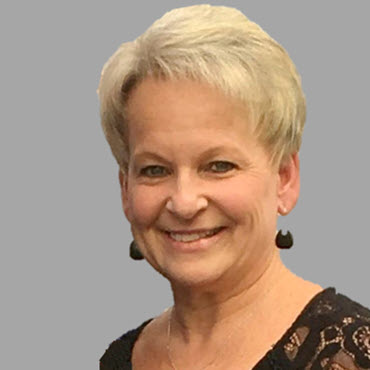
Navigating a new reality demands a human-centric qualitative approach. People want their personal values to be evident in the products, services and experiences they choose. And they want brands to engage with them as whole persons rather than as consumers. To uncover truly human insights, brands need more than just numbers—they need to hear from the humans who interact with their products and services day in and day out. But, given the relatively small sample sizes used in qualitative research, it’s imperative to talk to the right people who are equipped to provide relevant insights. In fact, ensuring the right people are in the room can determine an entire qualitative project’s success.
Put simply, recruiting is the heart of qualitative research. A poor recruit is what keeps moderators up at night. There’s nothing worse than feeling a client’s palpable frustration in the virtual backroom or on the other side of the two-way mirror because the wrong people are seated around the focus group table.
Imagine a moderator asking a group of healthcare professionals to describe how they make financial decisions for their organization, only to discover they have no influence in financial decision-making at all. None. Nada.
Cue the crickets. And unhappy clients.
Niche Recruiting Can Be Challenging
Escalent’s recruiting capabilities were recently put to the test for a qualitative project to assess interest in a healthcare financing product, which meant recruiting the aforementioned financial decision-makers and influencers from a range of healthcare organizations:
- Individual practices
- Group practices
- Ambulatory centers
- Nursing homes
- Urgent care facilities
- Health systems
- Rural/critical access independent hospitals
- Urban independent hospitals
Oh, and we needed to recruit from a mix of small, mid-sized and large organizations geographically dispersed across the US.
For even more complexity, we needed to recruit specific roles and titles across the healthcare organizations, including CFOs, finance directors, physicians/owners, office managers, nurse practitioners and revenue cycle managers.
On paper, the recruiting task seemed nearly insurmountable—like finding proverbial needles in an enormous haystack. Was this even possible?
Escalent Excels at Recruiting Challenges
Our client had attempted this difficult recruit with other suppliers that were unable to get the right people in the room. They turned to Escalent, and their trust in our expertise was not misplaced. Despite the complex criteria, we successfully recruited more than 50 decision-makers and influencers for a three-day online bulletin board and eight focus groups—much to the client’s surprise and delight!
How did we do it? Glad you asked.
For every qualitative project, Escalent implements strategies to ensure the right people are recruited:
1. Establish the project’s scope: It’s paramount to determine the research objectives and business questions that must be addressed when developing the recruiting criteria.
In our recent study, the research objective was to assess a new healthcare financing product. To qualify, respondents must be a decision-maker or have influence over financial decisions for their specific healthcare organization.
2. Ask the right questions.
Respondent screeners—questions we ask to validate that a person is the right match before we invite them to partake in the research—must include specific questions whose answers will easily identify qualified respondents and eliminate those who do not qualify. Questions that are too vague are generally ineffective.
For example, our recent healthcare screener didn’t just ask a yes-no question about financial decision-making involvement but dove into the extent of the involvement, finding out whether a potential recruit is a primary decision-maker, makes decisions with input from others, influences decisions as part of a committee, provides input to decision-makers, or has minimal involvement.
3. Partner with qualified sample providers.
Escalent has long-standing relationships with database providers that specialize in identifying and recruiting targeted audiences. Working with us provides our clients with access to many different recruiters. We stay up-to-date on the strengths of our many partners to know which to work with on any given study.
After aligning on recruiting criteria and developing an enhanced screener that asks the right questions, we work closely with our sample providers to monitor recruiting, identify potential recruiting barriers, and adapt as necessary.
But not only do we have really great, long-standing relationships with multiple panels, we go a step beyond with our dedicated buyer team here at Escalent. We know the panels that are the best fit for each particular research project. In this case, we used specific panels to recruit high-level players in their field. In a different project in another industry? We would have used different panels to achieve their specific goals. We have a firm understanding on which panels can deliver what.
The Result? Project Success and a Satisfied Client!
Because we were able to successfully recruit the right people, we were able to obtain the necessary insights to meet research objectives, and then some.
While other companies may hesitate to tackle such a challenging recruit, Escalent not only embraced the challenge but excelled.
Got a target audience that is tough to recruit? Put Escalent’s recruiting expertise to work finding the right people for your qualitative research.









